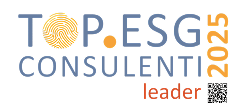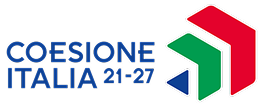Gender equality is one of 17 Sustainable Development Goals OfAgenda 2030 of the United Nations (SDG No. 5) and also represents the heart of Mission 5 of the Italian PNRR.
Among these, the certifying UNI/PdR 125:2022 provides precise guidelines for building a management system dedicated to gender equality, capable of transforming principles and values into measurable business practices.
Today, the commitment of organizations to issues such as diversity, inclusion and equity is no longer just an ethical choice, but a real one competitive factor. In fact, people are more likely to trust and recommend a brand when they perceive that it acts in a way inclusive and responsible.
In this scenario, obtaining the UNI/PdR 125:2022 certification means not only adapting to recognized standards at national and European level, but also investing in reputation, performance and social sustainability.
In this article, we will explore in detail what the UNI/PdR 125:2022 certification is, how to obtain it and what advantages it brings to companies. Let's get started!
What is the UNI/PdR 125:2022 certification on gender equality
La UNI/PdR 125:2022 It is the reference practice that defines criteria and guidelines aimed at promoting gender equality within organizations.
This tool has the objective of Overcoming stereotypes and discrimination, accompanying companies in a process of cultural transformation towards a work environment that is more inclusive, equitable and respectful of the skills of all people.
Introduced in accordance with the Bonetti Decree of 29 April 2022, UNI/PdR 125:2022 has been recognized as the reference document for the national certification on gender equality envisaged from the PNRR. Obtaining certification allows companies not only to enhance their commitment to the subject, but also to access concrete advantages such as relief on social security contributions.
Getting certified means commit to concrete fronts like:
- equal pay between men and women,
- equal access to training and career opportunities,
- attention to work-life balance and parenting policies,
- building an inclusive and safe work environment.
The document also recalls the principles of UNI ISO 30415:2021 “Human Resource Management — Diversity and Inclusion”, inserting gender equality into a wider framework of social sustainability and competitiveness.
In this way, UNI/PdR 125:2022 represents not only a certification, but a virtuous growth path and an opportunity for companies to improve their performance, attract talent, contribute to a fairer society and obtain a competitive advantage compared to the competition.
Who is UNI/PdR 125:2022 addressed to
The UNI/PdR 125:2022 certification is aimed at all organizations, public and private, regardless of size, sector or legal form, who wish to promote a work environment that is fair, inclusive and respectful of gender diversity.
This is one voluntary tool, but particularly recommended for companies that want to strengthen their internal policies of social sustainability, improve inclusion practices, ensure equal pay and promote a real reconciliation between private and professional life.
Excluded from the certification are VAT numbers Without employees while it is desirable that consortia, business networks or general contractors adopt the practice and also request it from their partners and suppliers, thus encouraging a wider dissemination of the principles of equality.
In this way, certification is not limited to being a formal recognition, but it becomes a engine of organizational change capable of generating social, economic and reputational value for the company and for the community.
How to obtain the UNI/PdR 125:2022 gender equality certification
To obtain the UNI/PdR 125:2022 certification on gender equality, organizations must adopt a Management system for gender equality, which can be integrated with other systems already in the company. This system allows structure policies and processes in line with the principles of practice, ensuring a concrete and measurable approach.
The certification is issued by accredited certification bodies, following an audit that includes:
- documentary checks,
- on-the-spot checks on the application of the measures adopted,
- conclusive technical review.
UNI/PdR 125:2022 also defines a series of Key Performance Indicator (KPI) that measure the level of inclusion and equality in the company, divided into 6 evaluation areas:
- culture and strategy;
- governance;
- human resources management processes;
- opportunities for women's growth and inclusion;
- gender pay equity;
- protection of parenting and work-life balance.
Each area has a specific percentage weight that contributes to the overall score. To obtain certification, the organization must achieve at least 60% of the expected score, demonstrating that they have undertaken a structured and trackable path towards gender equality.
How long does the UNI/PdR 125:2022 gender equality certification last
The UNI/PdR 125:2022 certification has a valid for two years. Once the certificate is obtained, the organization must undergo annual surveillance audits (also called maintenance), carried out by the accredited certification body.
These checks are intended to:
- ensure ongoing compliance of the management system for gender equality,
- monitor the concrete application of the policies adopted,
- promote a path of continuous improvement in business practices.
At the end of the two-year period, the company that intends to maintain the certification will have to face a renewal process, with a full audit that confirms the progress made and the strength of its commitment to gender equality.
In this way, certification is not only a formal recognition, but it becomes a tool that stimulates the organization to grow steadily and to consolidate its value both internally and externally.

The 5 advantages for companies of obtaining gender equality certification
The UNI/PdR 125:2022 certification represents much more than a formal recognition: it is a strategic tool which combines economic, organizational and reputational benefits, helping to make companies more competitive and responsible.
Let's see the main advantages for organizations that choose to become certified.
1. Economic benefits and contribution relief
Certified private companies can access a contribution bonus on the payment of total social security contributions paid by the employer. The exemption, applied on a monthly basis, is equal to 1% of the amount due, with a maximum ceiling of 50,000 euros per year per company.
2. Award scores for tenders and public contracts
Certified organizations obtain additional scores in the evaluation of projects funded with national and European funds and in public calls. This increases the chances of success and gives priority access to funding and investment opportunities.
3. Strengthening reputation and brand
Promoting gender equality means communicating a concrete commitment to the values of inclusion and social responsibility. Companies that adopt inclusive policies improve their image with stakeholders, customers and employees, strengthening brand trust and credibility.
4. Increased competitiveness and business performance
Companies that invest in gender equality are not only able to attract and retain qualified talent, but they also develop a more stimulating and innovative work environment. This approach translates into more effective management, a greater ability to face market challenges and an overall improvement in business performance.
5. Alignment with national and European regulations and strategies
The certification supports companies in adapting to regulations (such as Law No. 162/2021 on equal pay and mandatory reporting for companies with more than 50 employees) and is part of the framework of the National Strategy for Gender Equality 2021-2025 and the European Gender Equality Strategy 2020-2025.






























